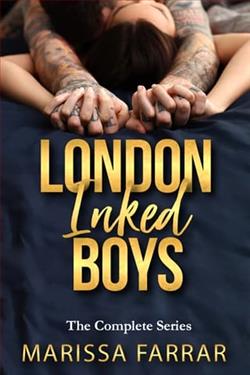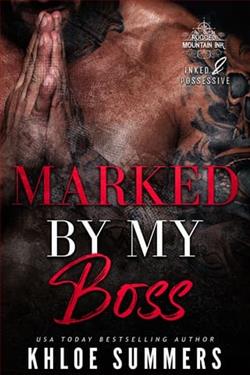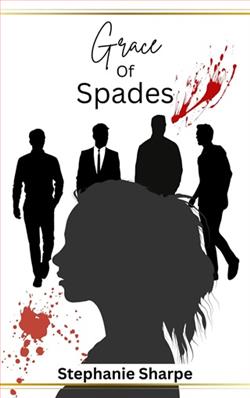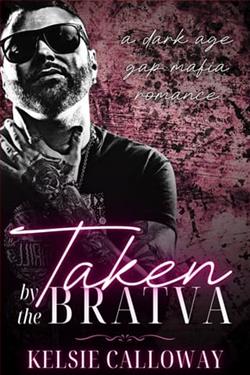Page 1 of The Duke's Counterfeit Wife
Prologue
Griffin Calderbank frowned at the ridiculous advertisement plastered across the front page of his favorite newspaper.
His Grace, the Duke of Peasgoode, being of sound mind and frustratingly deteriorating body, has decided to eschew standard practice in choosing an heir. Having never married, and with no nephews, male cousins, or even particularly likable male second cousins, he will choose the next Duke from the following list of eligible names. Each of these men bears a relation to the current Duke through his mother or father’s line, and should apply to the address listed below, should they wish to be considered. The successful candidate will prove a strong sense of familial bonds and loyalty, as family is what His Grace, the current Duke, values most, lacking it as he is. He understands there are some families in the world which resemble a pack of ravaging hyenas; these need not apply.
Fooking ridiculous. Still, Griffin couldn’t seem to make himself fold the paper and toss it aside, as it deserved. What kind of madman chooses his heir in such a preposterous manner? His eyes were drawn down the list of names—at least fifty of them—which followed.
He was torn between horror and laughter, until his gaze landed on the second column, and he damned near choked on his tongue.
Sir Michael Comhard (the current duke’s third cousin once removed)
George Stoughton, the Earl of Bonkinbone (the current duke’s fourth cousin twice removed)
William Stoughton, his brother (same)
Arthur Wankum (the current duke’s fourth cousin twice removed)
Griffin Calderbank (the current duke’s third cousin once removed)
Now was the time to scoff, Griffin was certain.
And he would, as soon as he could breathe once more.
He recognized some of those names. He didn’t know them, not personally of course, but some he knew were cousins of some sort. His father’s mother had been a Comhard, and the Wankums were distant cousins on his grandfather’s side.
But a duke?
Griffin shook his head, and finally tossed the paper down as it deserved. Should’ve thrown it into the wastebin, where it belonged. Or the fireplace. Or the Thames.
A duke. He snorted under his breath.
Being the only son of a country vicar, who himself was the younger son of a younger son of a baron, Griffin had been raised with a vague sense of gentility, and no money whatsoever.
It had been a bitch through school, but he’d made his way ever since. And now some fooking duke had the ballocks to claim they were related?
He snorted again, louder, and ran his hand through his hitherto neatly combed hair.
Sundays were his only days at home, and he should be spending them with his children. But Mrs. Mac—when she’d brought him his coffee and buns—had told Griffin he was the first one awake, and he’d been grateful for an uninterrupted hour to spend leisurely perusing the news.
Until this.
Now his coffee sat sour in his stomach, and he wished he’d never read the bloody thing.
But it had become a daily ritual, since his family’s return from America, to scour the papers for hints into the investigation against his old employer. The reporters at the Daily Constitutional had always seemed so level-headed, but this was nonsense.
A knock at his study door had him pushing himself straighter in his chair. “Come,” he barked.
His daughter poked her head through the door. “Good morning, Papa. Can we join you?”
“Aye, of course.” Assuming this meant Rupert was finally dressed and ready to leave, he gestured his children into the sparse room. “Since I promised we’d skip church this morning, would ye like—”
His plans bit off when he saw who followed Marcia into the nearly barren room he’d commandeered for himself when he’d chosen this townhouse six months ago.
Griffin’s lips turned down into a scowl. “What are ye doing here?”
“Good morning, Gruff,” the little shite declared, strolling into the room as if he owned the place.
Bull Lindsay lived next door, in a townhouse with an identical layout, far better furnishings, and a mother who didn’t share his last name.















